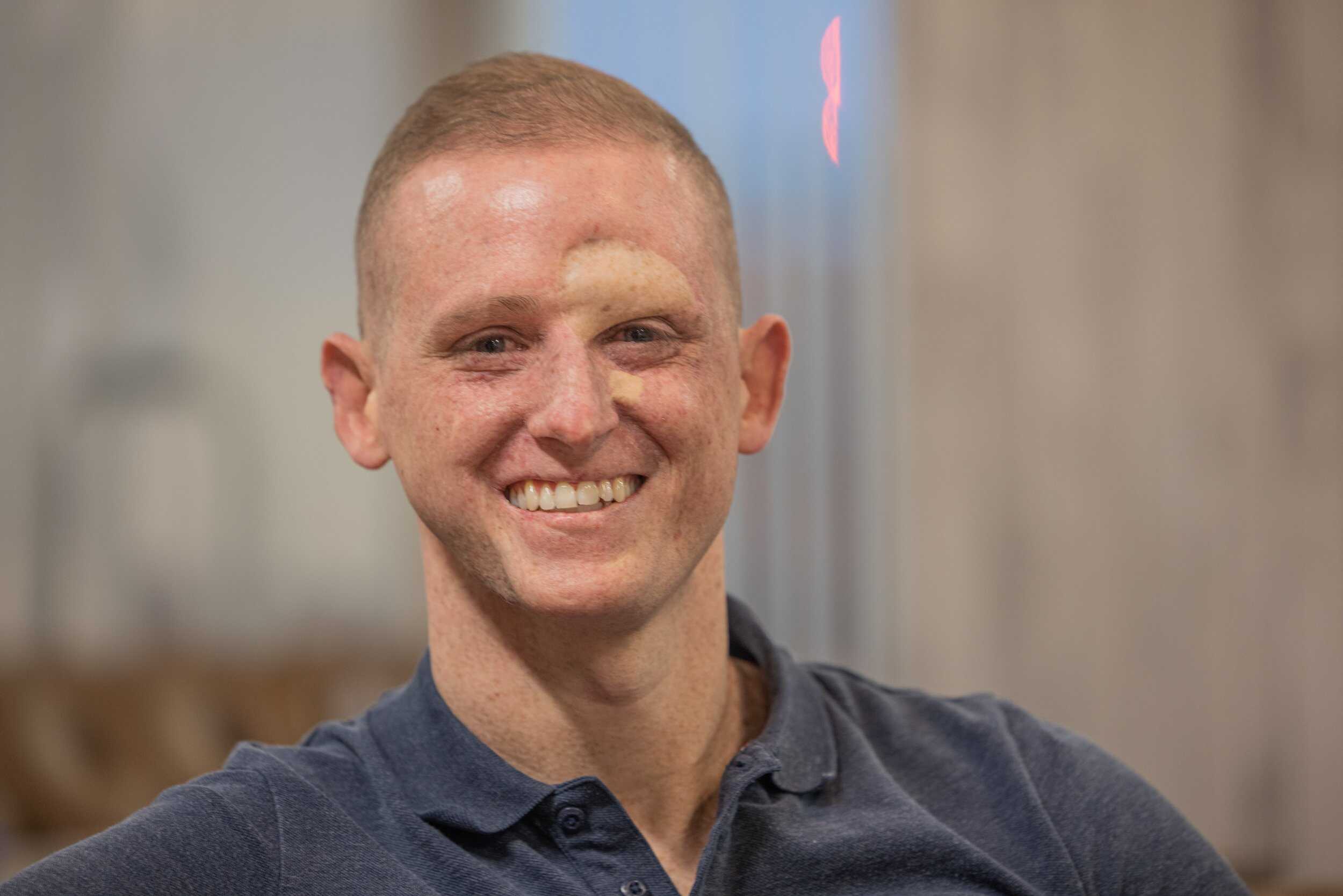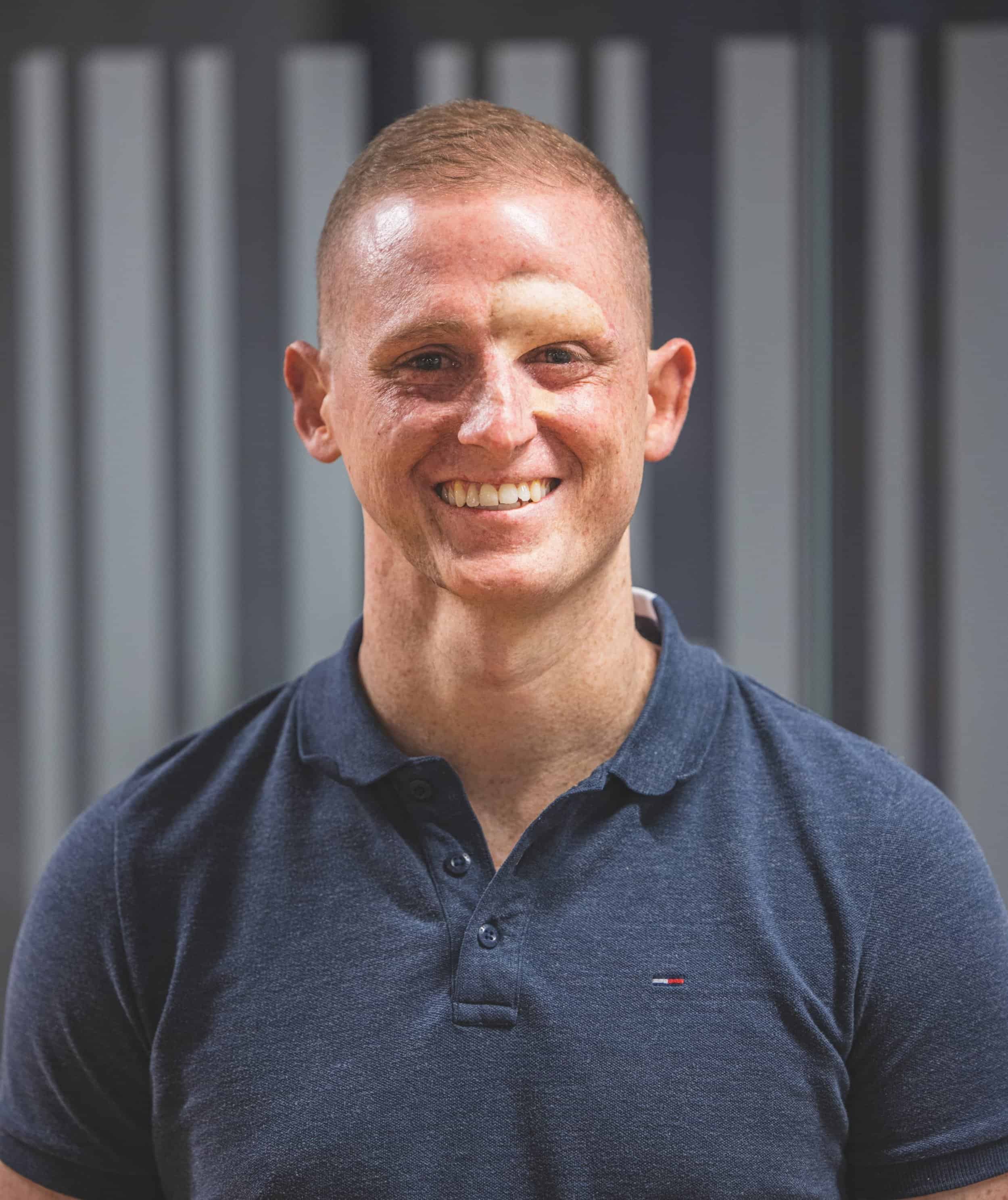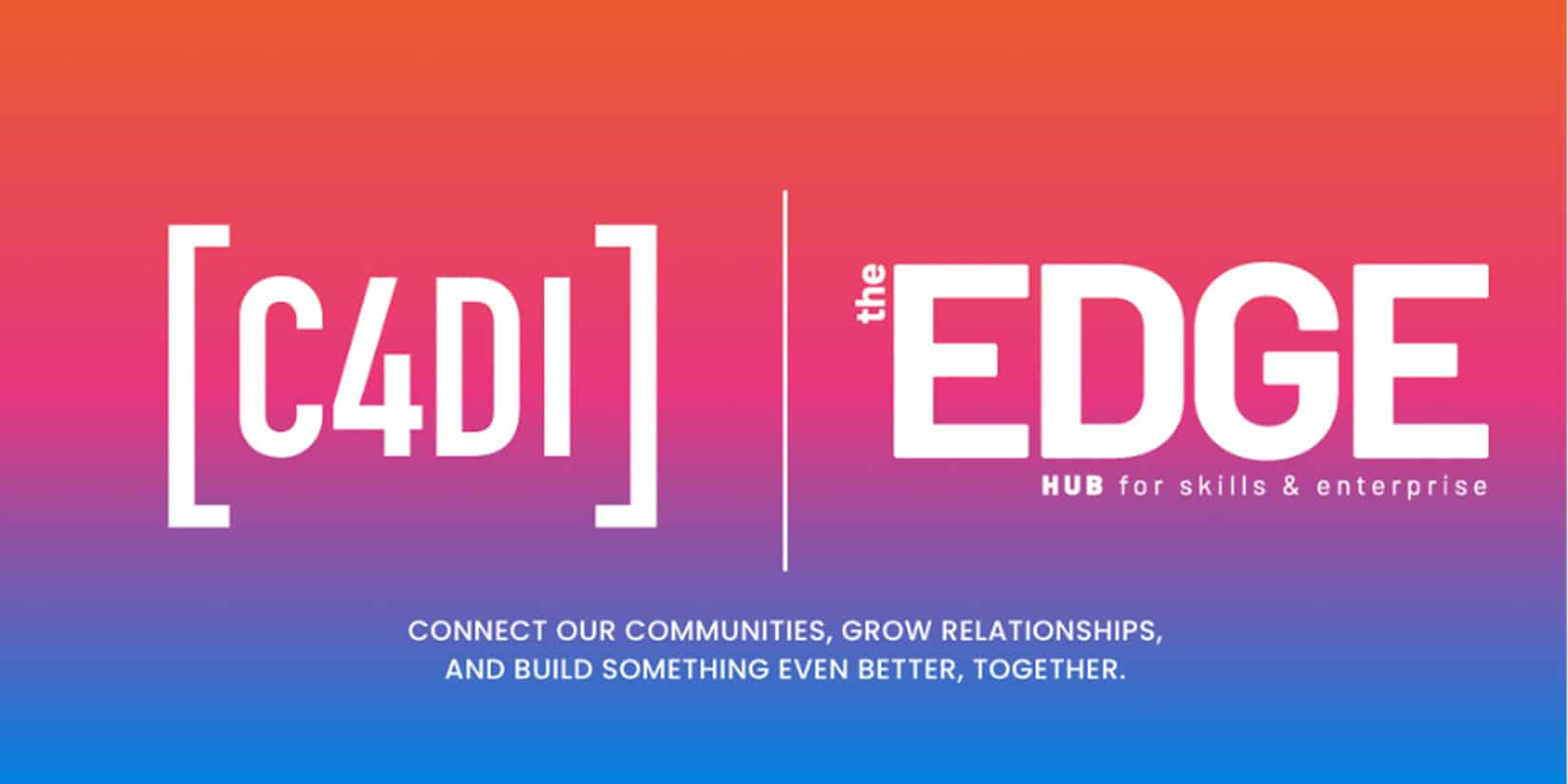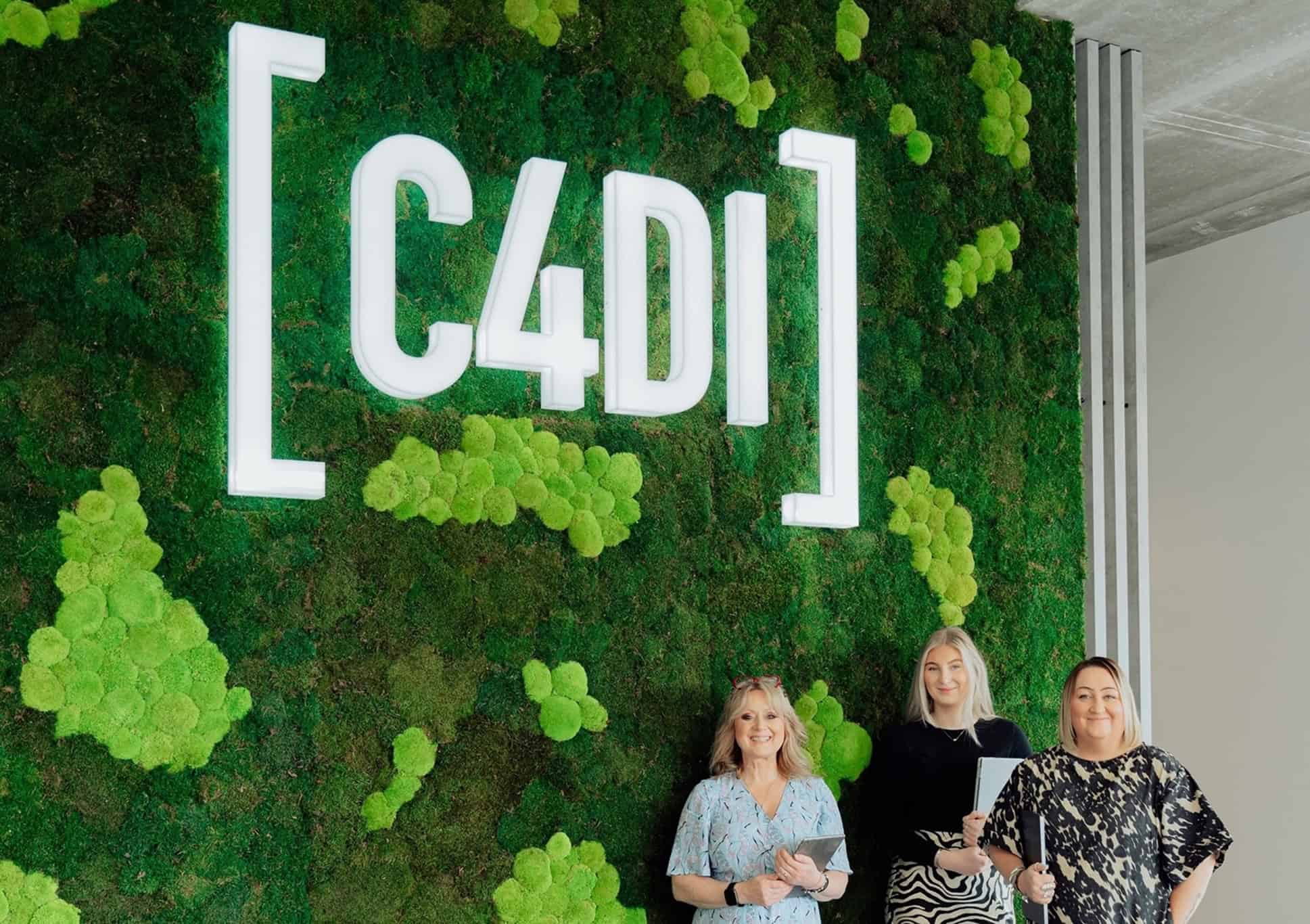Video by Influence Media
Most people grow up thinking robots are cool. Not many end up working with them.
Well, that’s exactly what Josh Barnfather does.
He’s the subject of this month’s story. He works as a robotics engineer, researcher and data science consultant for companies looking to optimise products with AI.
We caught him on a good day. He’s got a robot with him at C4DI when we interview him. It’s helping him do some testing for a project and we’ll talk more about that in a bit.
But it’s not the only reason we wanted to talk to Josh.
His work on robotics projects within the nuclear industry is only made more impressive considering his own experience with life altering illnesses and cancer recovery. Find out about all that and more, below.
The globe-trotting robot man
The main theme of Josh’s work is developing robotics products that can take measurements in harsh environments. One of the highlights of his career so far has been working on the Fukushima Daiichi nuclear decommissioning effort in Japan.
The nuclear disaster caused by the earthquake and tsunami in March 2011 released significant amounts of radiation into the atmosphere. Despite the human impact being limited by evacuation efforts, the clean-up and decontamination operation will take an estimated 30 to 40 years.
Josh’s role has been in developing “navigation technology for robots that were deployed into the damaged reactors to take measurements of key bits of information, that would help with the decommissioning.”
He’s also used the learnings from this and “applied similar techniques to non-disaster scenarios in the nuclear industry, for radiation measurement using robotic vehicles.”
Josh has taken him to the decommissioning of the Fukushima Daiichi site in Japan. Image: NBC
His career so far has taken him all over the world and has seen him work on R&D projects with Rolls-Royce “using robots to improve efficiency in nuclear pressure vessel machining”. He’s also worked on non-nuclear projects “applying data analytics skills from the world of robotics to more general data problems, predictive analytics and understanding trends.”
It sounds like high level, complicated stuff but then Josh’s full title is Dr Josh Barnfather. The man has a collection of letters before and after his name including his PhD in Nuclear Engineering, but he humbly contends that he prefers to “talk about experience rather than qualifications.”
The future of robots in nuclear engineering
Everyone wants to know what the future holds when it comes to robots. Videos of dancing robo-dogs from American firm Boston Dynamics, will either strike fear or excitement into your heart, depending on who you are.
But there’s no question that robots have a role to play in the future of society. They present endless useful solutions that could revolutionise human progress.
Josh’s area of expertise is obviously in nuclear engineering and he’s certain they will be here to stay. “I see a lot more robotic technologies being applied in the nuclear industry. There’s a great deal of research and development going on in this area,” he says.
One reason for this is their usefulness in dangerous industrial environments. Robots keep “humans away from hazardous conditions and make the process of taking measurements more efficient.” This presents huge opportunities for data analytics and trend detection.
Which is what the robot with us on the day is doing (this one is on wheels rather than all fours). The project Josh is working on involves “robotic radiation monitoring in the nuclear industry” The robotic four wheeled vehicle, is manufactured by Robotnik and can be controlled by a PlayStation controller.
The robot has a “radiation detector attached to it that moves around a floor space to detect contamination” which is useful for routine inspection of radioactive contamination in operational and decommissioned nuclear facilities.
The robot with us on the day we speak to Josh.
Has he always been into robotics?
So how did he get into this field? It’s certainly not every day you meet someone who works in nuclear or robotics.
Josh says he “got interested in robotics because it covers a lot of different technologies; a lot of different scientific and technological disciplines. So, it’s diverse. And it can be applied to a wide range of industrial problems which I also find exciting.”
He’s not always had his eye on robots though. His interest in the field began when he was beginning his PhD. “I was looking at different options in engineering to research for four years. It isn’t something I’ve been pursuing since I was very young. It was just an opportunity that came up and I found it exciting enough to stick with.”
It was during this PhD with The University of Manchester that he collaborated with Rolls-Royce Civil Nuclear, The Nuclear AMRC and The National Physical Laboratory.
The power of business connections and community
The interest in robots brought Josh to the tech hub of C4DI.
This has in turn helped him to connect “with larger companies that [he] otherwise wouldn’t have been introduced to, which has led to interesting projects.” As well as robotics research and development he also consults other companies on data science, by applying what he knows.
But it’s not just the business connections at C4DI that has been invaluable. We’re also a community. And that has had a huge impact on his life.
When Josh was diagnosed with an aggressive form of life-threatening cancer, a group of people from the C4DI community initiated a fundraiser to help him out.
Image: Influence Media
Doing it for Josh
In 2017 Josh was diagnosed with angiosarcoma, a rare form of cancer affecting the inner lining of blood vessels. Born with a rare skin condition, Josh had successfully battled several skin cancers throughout his life, but standard treatments were having no effect on this illness. Untreated, the cancer could have cut short his life and work.
He’s still undergoing cancer treatment but has “been on a very positive trajectory for three years now”. And that’s all thanks to the experimental life-extending treatment that he was able to receive because of fundraising efforts that took place.
At the heart of the fundraiser was the #DoItForJosh campaign. You can find out more about that here. Throughout 2018, the campaign, started by key C4DI members, encouraged people to raise money by doing something for Josh, whether that was a bake sale, football tournament, long distance run or something else (and there were plenty of other activities going on).
In the end, over £65,000 was raised, helping Josh to get the treatment he needed.
We’re pleased to report that 3 years later the cancer in Josh’s body is negligible. It’s “at the level now where the oncologist can’t say for certain whether [scan activity is the cancer] decreasing or whether it’s just measurement noise.”
Amazingly “within a couple of cycles of treatment it was about 80% fixed”. By the end of the year, he’s hoping to be off treatment entirely, which is fantastic news.
Has illness and recovery changed his view on things?
It’s an inspiring story, having overcome multiple illnesses to continue doing important and exciting work. Before we wrap up, I ask if his experience has changed his perspective on anything.
“I think it has impacted my view of the future and what I prefer to focus my energy on,” he says. But he stresses that it hasn’t necessarily changed the path he was on, calling the cancer and treatment a “blip in the overall timeline” of his career trajectory.
The question has clearly given him pause for thought though and he goes on to acknowledge that it has changed his perspective on some things. “It certainly makes you think about priorities quite a lot and always having a plan to spend your time intentionally rather than just falling into things.”
He then jokes “You’ll have to wait for my book [to get the full thoughts], when I’m tired of robots and I write the autobiography”. I’m not sure this is a serious suggestion but either way it’s clear he won’t tire of robots for a while yet.
Earlier in the conversation he said, “I don’t see robotics leaving my world any time soon”. So, we might have to wait a while for the autobiography, but I think the robotics world and indeed the world at large will be happy to wait.
Words by: Goodfellow Content
Video and images by: Influence Media







